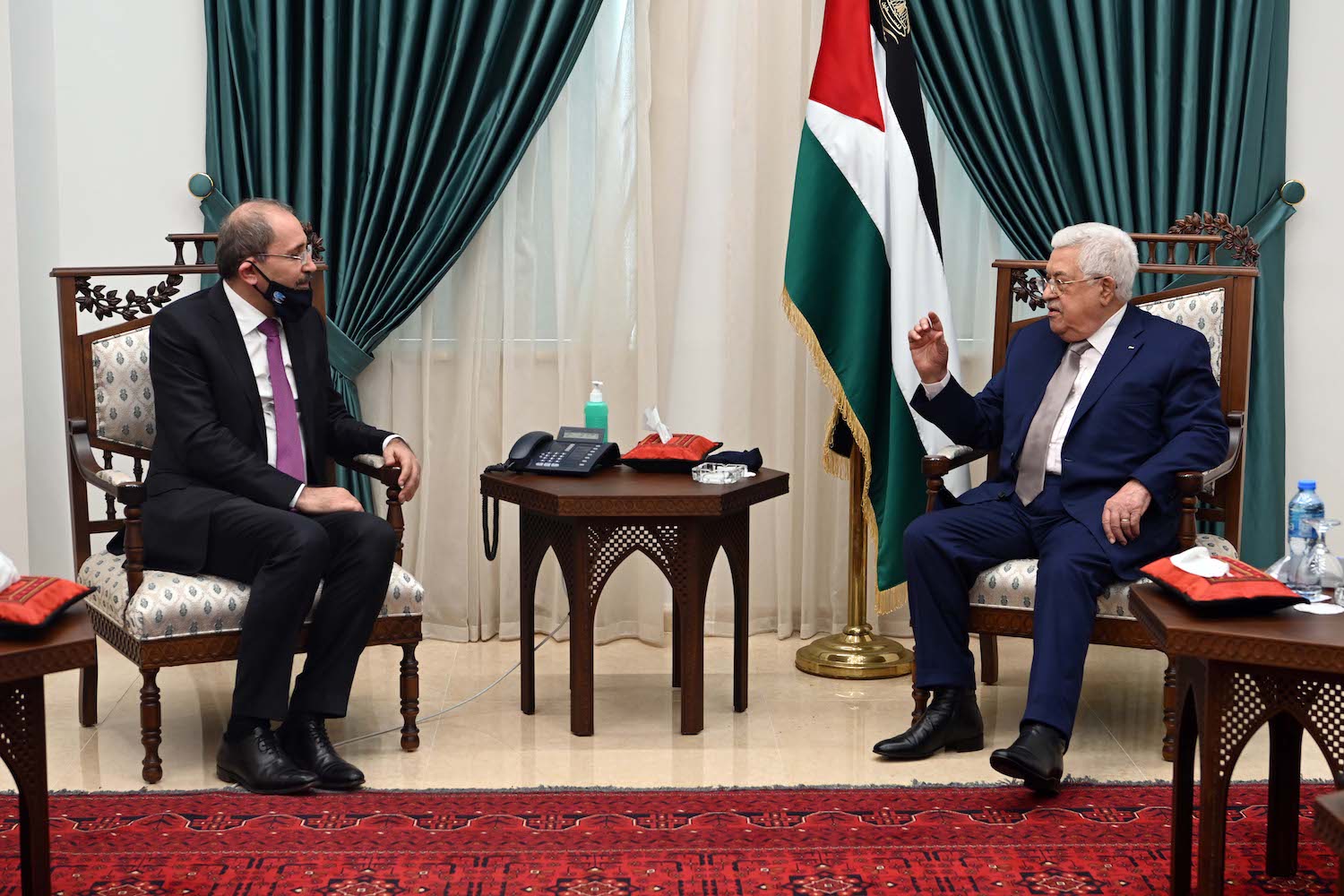After meeting with President Mahmoud Abbas in Ramallah today, Jordanian Foreign Minister Ayman Safadi said the Israeli annexation of occupied Palestinian land will kill peace.
“The annexation decision is unprecedented for the peace process,” he said during a press conference with his Palestinian counterpart Riyad Malki. “It will kill the two-state solution, destroy all the foundations of the peace process, and will deprive all peoples of the region of their right to live in security, peace and stability.”
Safadi, who flew into Ramallah on a Jordan army helicopter, said, “Preventing annexation is a protection of peace. All our efforts are focused on preventing annexation and finding a real horizon for a return to serious and effective negotiations to achieve peace on the basis of the two-state solution, which the whole world has agreed is the only way to achieve a just and comprehensive peace.”
Malki said Safadi’s visit comes as part of the Palestinian-Jordanian coordination on all matters.
He said the meeting “focused on how to prevent Israel from proceeding with the annexation of large swaths of the occupied Palestinian territory, and to coordinate the Palestinian-Jordanian steps to reach what we are working on, which is to prevent annexation.”
He said that Jordan, under the leadership of King Abdullah II, “is exerting vigorous and courageous efforts in the world to prevent the Israeli annexation, and this was evident in the Jordanian King’s contacts with the American House of Representatives and the various committees, and what Minister Safadi is also doing at all levels, which helps a lot in delivering the message clearly to various countries of the world to mobilize the largest international stance against the annexation.”
Malki said: “The discussion that took place today is important. We talked frankly about how to double our efforts and coordinate the joint Palestinian-Jordanian efforts to reach a clear decision to prevent annexation, and to emphasize the readiness of the State of Palestine, supported by the Kingdom of Jordan, to sit and negotiate on the basis of international legitimacy and international references.”
He added: “It was agreed during the meeting on how to follow up on the coordination efforts, to be added to those made in order to prevent the annexation, whose repercussions will be on peace and security in the region.”
Safadi started the press conference by stating that he transmitted a message from King Abdullah to President Abbas “in the framework of the coordination and consultation between the Kingdom and the brothers in the state of Palestine.”
He added that “the position I carried today is the Kingdom’s historic and firm position based on fulfilling the rights of our brothers to freedom and establishing a full Palestinian state with occupied Jerusalem as its capital on the borders of June 4, 1967, which is the only way to achieve a just and comprehensive peace – the peace that people accept, which constitutes a strategic choice for our brothers in the state of Palestine, for us in the Kingdom, and for all Arab countries.”
Safadi continued, “Our steadfast and historical message is that the Kingdom, under the constant guidance of the King, stands with all its capabilities alongside our brothers in supporting their full legitimate rights.”
The Jordanian minister said: “The Kingdom has been and will continue to exert every effort and do everything possible to support the brothers in Palestine and achieve a just and comprehensive peace that protects the region from the consequences of a long and painful conflict if Israel annexes a third of the occupied West Bank.”
“We said yesterday that the annexation means that Israel choses conflict instead of peace, and it bears the consequences of such a decision, not only on Jordanian-Israeli relations, but also on the efforts of the whole region to achieve a just and comprehensive peace.”
Safadi said, “The Kingdom of Jordan continues to work with the brothers and the world to prevent annexation, and to find a real horizon for launching effective negotiations that will bring us a just peace, which is peace that is necessary for regional and global security and stability.”



